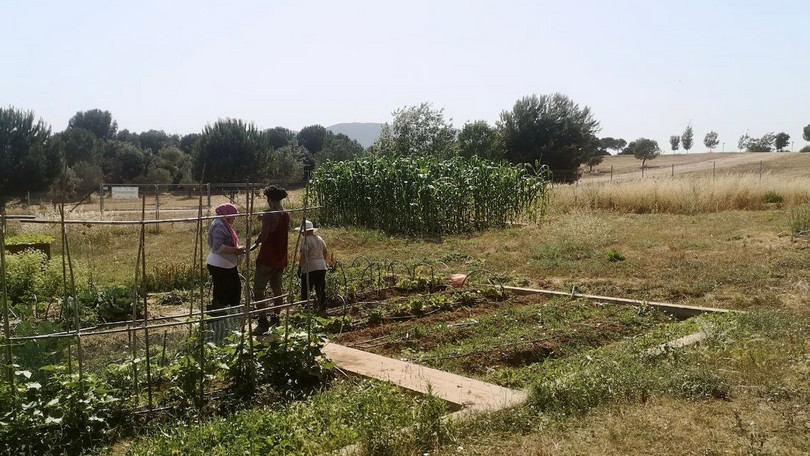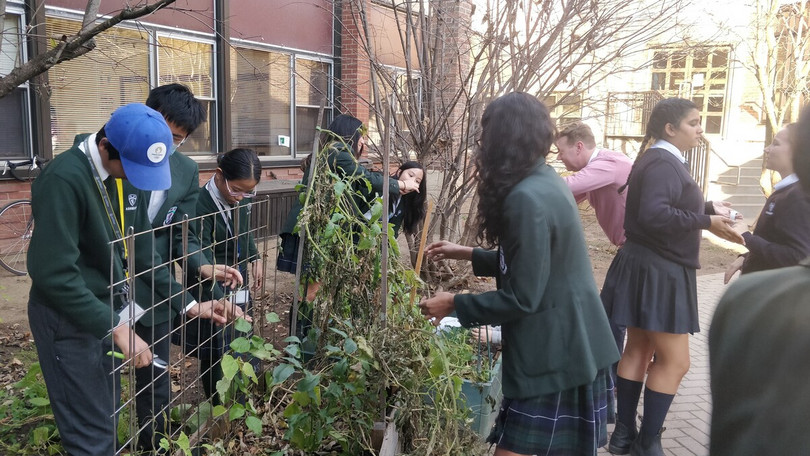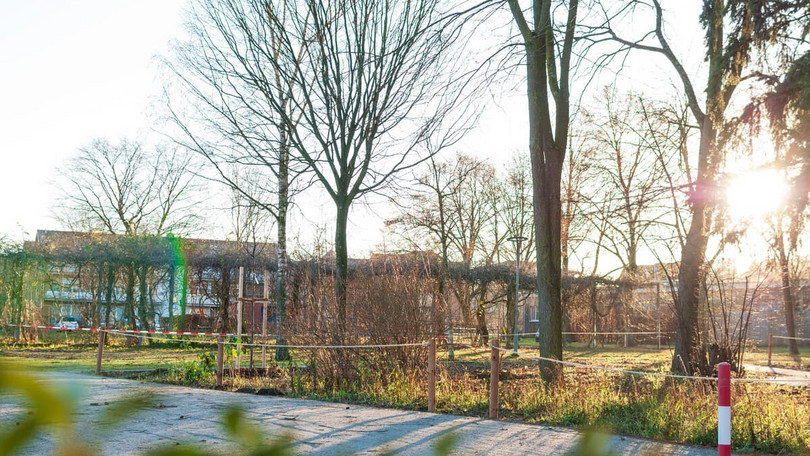Basic Programme Practice Phase: How Insights Sprout from Experience
2023-03-20 The Basic Programme Practical Phase enables students to gain practical work experience during their studies. Two students from the Faculty of Sustainability took the basic programme abroad and reported on their positive experiences.
Melina Thieß is studying Environmental Sciences and Education and was given the chance to gain professional experience in Canada through the Basic Programme Practical Phase during the lecture period. "I am very grateful that I was able to get credit for the internship and thus still had the opportunity to go abroad during my studies," she says. During her internship at the NGO "Genvironment", Melina regularly dug up the soil of various raised beds with children and young people from different school classes. "Once a child discovered an earthworm. In a garden, that's nothing spectacular at first, but all attention was suddenly focused on the worm," Melina Thieß recalls. The children reacted very differently, from disgust to fear and interest or discomfort. The student took this as a reason to sit down with the children and explain how important worms are for healthy soil. "When the children came across worms again in the following days, they were no longer disgusted, but remembered what an important task worms have for the soil. Watching the children change their attitude was a powerful experience for me."
The grassroots programme enabled Melina Thieß to bring children closer to their immediate environment, for which she is very grateful: "To see that the pupils got a feeling for what was happening in the beds was super fascinating to me, because I always assumed that people didn't pay any attention to that". One important lesson she took away was to link knowledge with direct experience instead of just teaching textbook knowledge.
But that did not always prove to be easy. Especially while planning and developing the workshops with her colleagues, she often noticed how challenging it is to design a programme as an all-round package: "There are many different factors and aspects that need to be considered when planning a lesson." Thanks to the basic programme, she gained insights into other school systems and found great interest in pedagogy.
Friederike Vogel, a sustainability student, was also able to get closer to her passion through the basic programme. "I was able to choose the internship position myself and also used this to pursue my main area of study," she told us. As her studies in Environmental and Sustainability Studies progressed, Friederike became increasingly interested in sustainable food growing beyond self-sufficiency. Her internship site, the community garden "Hort del Mercat" in Barcelona, focuses on sustainable food supply and ecological cultivation techniques for a local supply of the neighbourhood. This fuelled Friederike's curiosity, so that during the internship she conducted workshops, for example on soil ecology, with people of different ages and origins with equal zeal. She answered questions and explained the background to the project. Over time, Friederike realised how much knowledge she had already acquired from her sustainability studies, but also the difficulty of communicating her knowledge in an understandable way. Despite this, she also noticed how much interest she still has in it. "The basic programme helped me a lot to realise how enthusiastic I am about the subject. I was not aware of that before the internship," Friederike concluded.
As a course in complementary studies, the basic programme Practical Phase can be chosen by students from all degree programmes and successfully credited to their studies. In addition to an online Moodle course, the practical phase of the basic programme is underpinned by an opening and a closing workshop, which are offered both at the beginning and at the end of the semester. Since the period of implementation is thus to be organised independently, the location of the practical phase is also irrelevant.



